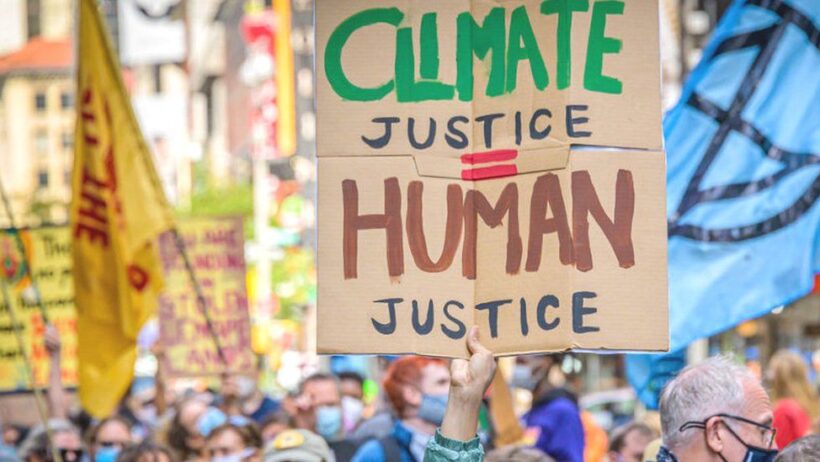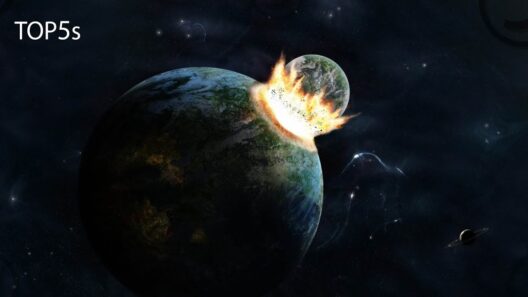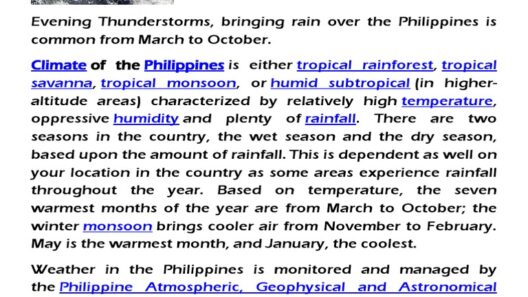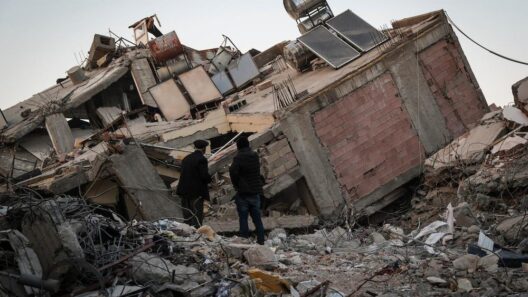The climate crisis is an urgent issue that transcends borders, economies, and species. This crisis is not merely a natural calamity but a byproduct of human actions – actions deeply embedded in our societal norms and economic structures. Are our actions to blame? The answer is unequivocally yes. A profound exploration into human contributions reveals a tapestry woven with the threads of industrialization, deforestation, and unsustainable consumption patterns. Each strand of this tapestry represents a choice, a promise of convenience over consequence that has culminated in a planetary emergency.
The heart of the matter lies within the Industrial Revolution, a transformative epoch where humanity transitioned from agrarian societies to industrialized powerhouses. What appeared as progress fostered a burgeoning reliance on fossil fuels, releasing copious amounts of carbon dioxide – a greenhouse gas now synonymous with climate change. The burgeon of factories, heralded as beacons of modernity, belched smoke and injected pollutants into the atmosphere. As mechanization became the norm, the very foundation of our environment began to tremble under the weight of emissions. Can we, in good conscience, disregard the ramifications of our industrial choices on the planet’s delicate climate balance?
Moreover, the relationship between humanity and nature has been marred by rampant deforestation. Forests, often referred to as the lungs of our planet, have faced relentless destruction to cater to agricultural expansion and urbanization. From the Amazon rainforest to the boreal forests of Canada, ecosystems are being dismantled at an alarming rate. This annihilation of flora not only strips away biodiversity but also exacerbates the climate crisis. Trees play a crucial role in sequestering carbon, and their disappearance equates to releasing stored carbon back into the atmosphere. Are we, then, complicit in this act of self-sabotage? The short-sightedness of this behavior raises eyebrows and demands scrutiny.
Further complicating our predicament is our culture of consumerism, a relentless pursuit of more at the expense of sustainability. The desire for instant gratification fuels production processes that prioritize efficiency over environmental impact. From fast fashion to disposable plastics, the consequences of this rampant consumption manifest in overflowing landfills and polluted oceans. Statistics elucidate that humans generate approximately 2 billion tons of waste annually, a veritable mountain of refuse that degrades natural habitats and contributes to greenhouse gas emissions. Isn’t it time we scrutinize our appetites, reassess our needs, and embrace a paradigm shift toward sustainable living?
Climate justice emerges as a crucial consideration within this discourse. It is vital to recognize that the impacts of climate change are disproportionately borne by marginalized communities, often those least responsible for the crisis. This inequity necessitates a profound reevaluation of responsibility. Wealthy nations, which historically have contributed the lion’s share of greenhouse gas emissions, owe a debt to the most affected regions. This recognition is not merely an ethical consideration; it is a clarion call for action. By acknowledging our roles within a global context, can we chart a path toward equitable solutions that dismantle the existing structures of oppression while addressing climate change?
Technological innovation also offers a glimmer of hope in these troubling times. The promising potential of renewable energy sources such as solar, wind, and hydroelectric power provides a pathway away from fossil fuel dependency. By harnessing these sustainable energy alternatives, we can significantly reduce carbon emissions. Yet, the deployment of these technologies must be equitable and just. The infusion of green technology into our energy systems cannot occur in a vacuum; it demands supportive policies, investment in infrastructure, and educational initiatives that empower communities. The timeline for these advancements is critical; can we mobilize our resources to effectuate change before it is too late?
Education stands as another pillar upon which we can build resilience in the face of climate change. The dissemination of knowledge surrounding environmental stewardship is imperative. By cultivating awareness about the impacts of our consumption patterns and lifestyle choices, we can inspire collective action. Initiatives that incorporate sustainability into educational curricula sow the seeds of change within future generations. This educational endeavor requires commitment at all levels—from grassroots organizations to governmental policies—to engender profound shifts in societal norms regarding environmental accountability.
The complexity of the climate crisis necessitates multidisciplinary approaches that embrace diverse perspectives. Engaging in meaningful discourse with various stakeholders—including scientists, Indigenous communities, policymakers, and businesses—will enrich our understanding of the multifaceted nature of climate change. Embracing diverse viewpoints fosters innovative solutions that may otherwise remain obscured within homogenous frameworks. As we weave this collaborative narrative, a connected future may yet emerge from the cacophony of challenges we face today.
Ultimately, the trajectory of our planet rests in our hands. The question, “Are our actions to blame?” is more than rhetorical; it is an imperative that calls for immediate and resolute action. Each decision, from the individual to the institutional level, accumulates in significance. The urgency is palpable, demanding we recalibrate our values and enact sustainable practices to mitigate the most dire consequences. The stakes have never been higher, and the time for decisive action is now. By confronting the reality of human contributions to the climate crisis, we can begin to carve out a path toward a more sustainable and just world.








